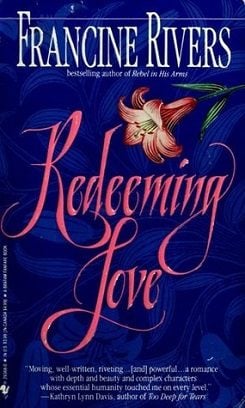 Today’s guest post is by Emma Fenske. Emma is a current MA student and incoming PhD student in the history department at Baylor University. She studies conservative evangelical women and their thoughts and theology through Christian historical fiction romance novels during the rise of Billy Graham and the Christian Right. By analyzing this genre of evangelical print media consumer culture, she hope to bring to light the ideas and theologies that answer the question “Who is an Evangelical?” from the perspective of everyday women whose voices are often left within the home.
Today’s guest post is by Emma Fenske. Emma is a current MA student and incoming PhD student in the history department at Baylor University. She studies conservative evangelical women and their thoughts and theology through Christian historical fiction romance novels during the rise of Billy Graham and the Christian Right. By analyzing this genre of evangelical print media consumer culture, she hope to bring to light the ideas and theologies that answer the question “Who is an Evangelical?” from the perspective of everyday women whose voices are often left within the home.
 When I heard about the upcoming release of the Redeeming Love movie, I was overjoyed. For the past year, I have studied conservative neo-evangelical women’s thoughts and theologies through Christian historical fiction romance novels, and I eagerly anticipated the new marketplace responses.
When I heard about the upcoming release of the Redeeming Love movie, I was overjoyed. For the past year, I have studied conservative neo-evangelical women’s thoughts and theologies through Christian historical fiction romance novels, and I eagerly anticipated the new marketplace responses.
And let me tell you, the reviews do not disappoint.
Christian romance novels have always baffled critics. With kitschy plots, overly intense themes, overly beautiful characters, and happy endings, Christian romance novels have been relegated to the sidelines of intellectual thought. But without fail, every time a new film adaptation is released, reviewers are once again shocked with the popularity of Christian fiction romance. The 2022 release of Redeeming Love, adapted from Francine River’s novel of the same name, is no exception. With incredibly high audience success (95% audience rating on Rotten Tomatoes with 500+ reviews) and incredibly low critic response, (12% Tomatometer on Rotten Tomato), there is a clear disparity in consumer and critic perception of the film.
Honestly, if you are having a bad day, read through reviews of Redeeming Love. Here are a few personal favorites:
- Redeeming Love is like the most expensive community theatre production you’ve ever seen. The acting is just not there…” “A Hallmark movie with a major dose of God thrown in, I’m sure there’s an audience out there for Redeeming Love. After all, 3 million people who bought the book can’t be wrong (they can, it’s trash). Think Little House on the Prairie on Cialis. If you think this film is right for you, ask your preacher if your heart is healthy enough for sex because, madame, this movie might make your blood pressure rise. Side effects may include headache, upset stomach, and the vapors.” (Austin Chronicle)
- The critics are reacting to a story they don’t understand. So, let them rant and rave. Just pay them no heed. I am one such fan. A friend in college recommended the book to me, and I was instantly hooked. That book turned my world-weary icy aura into an emotional blubbering mess. Any story that can do that has my full attention. That was sixteen years ago, and it is still so ingrained in my heart that I was able to recognize the story in an instant when the trailer first dropped. (Hollywood Jesus)
- If you or a loved one live in one of those parts of the US where the wind chills are presently subzero — or even where COVID-19 cases are surging — and you ventured out to see the dismal Redeeming Love, you should be entitled to compensation. Or at least a free ticket voucher for your next, hopefully, more enjoyable outing (Influx Magazine)
- Given the choice between watching pigs eat my legs and watching this movie again, I’ll pour barbecue sauce on my shoes myself (Parent Previews)
- Redeeming Love captures the beautiful story of what unconditional love truly looks like, especially when our sins may be too difficult for us to bear. Unfortunately, this poignant portrait of unconditional love also strays repeatedly into such provocative images that it might cause some who wrestle with pornography or sexual sin to stumble themselves. (Plugged In)
- …both Christians and non-Christians alike will flock to the theaters to see Redeeming Love… It will sell out in the theaters and top the box office charts… It will win awards and become a classic favorite. (Sharon Wilharm)
With reviews ranging from an immediate classic and must-see movie to a community theatre production whose viewers are entitled to compensation, Redeeming Love has baffled reviewers. Confusion does not fall on the gender line, or even in the separation between sacred and secular.
Rather, the clearest separation between positive and negative responses to the movie lies in the insider understanding of the novel and its audience. Which raises the questions, who is the intended audience, and what are the themes that baffle critics?
History of the Christian Romance Marketplace
While Christian fiction romance novels are not a new phenomenon, the current version of evangelical romance begins with the rise of neo-evangelicals in the 1960s and the rise of Billy Graham. Authors like Eugenia Price (1965) and Catherine Marshall navigated the rise of the evangelical print media, establishing a place for women in public leadership through the marketplace. Catherine Marshall’s Christy (1967) offered a deep story of faith and culture in Appalachia for its evangelical audience, and the book spent thirty-eight weeks on the New York Times bestseller list.
While notable, a separate marketplace of Christian romance did not truly occur until the 1980s, due to an increase in explicit sexuality in the romance novel market (Dell’s book line Ecstasy, Harlequin’s Temptation, Silhouette’s Desire). Christian Female readers revolted, writing letters to Christian publishers asking for Christian romance novels with less sexuality (Zondervan, Thomas Nelson, Bethany House, Multnomah). [8] An outcome of this cry was Janette Oke’s popular series Love Comes Softly (1979) and Beverly Lewis’s The Shunning (1997), both of which were discovered by editor Carol Johnson (Bethany House).
 It is within this marketplace that Redeeming Love appears. Rivers initially published Redeeming Love in 1991 with Bantam Books as a secular historical fiction romance novel. Following a spiritual transformation in Rivers’ personal life, she removed the book from the marketplace, took out graphic language and sexuality, and added greater themes of Christ’s redemption. She released the “redeemed” book as a Christian romance novel in 1997 (Multnomah). Rivers later describes her spiritual transition from “mommy porn” to Christian romance in her article with Today’s Christian Woman titled, “Confessions of a Former Erotica Author.”
It is within this marketplace that Redeeming Love appears. Rivers initially published Redeeming Love in 1991 with Bantam Books as a secular historical fiction romance novel. Following a spiritual transformation in Rivers’ personal life, she removed the book from the marketplace, took out graphic language and sexuality, and added greater themes of Christ’s redemption. She released the “redeemed” book as a Christian romance novel in 1997 (Multnomah). Rivers later describes her spiritual transition from “mommy porn” to Christian romance in her article with Today’s Christian Woman titled, “Confessions of a Former Erotica Author.”
If the themes Redeeming Love seem a little too sexual for the intended evangelical women’s audience, the marketplace transition from secular to sacred may offer the answer. As women transitioned from “mommy porn” to “Life-changing fiction” alongside Rivers, the themes would not have come as a surprise. (Karen Kingsbury is one such woman, who, inspired by Rivers, became an author of Christian Fiction.)
Redeeming Themes
What story is the Redeeming Love movie telling?
Redeeming Love (2022) opens with William Shakespeare’s phrase, “All that glitters is not gold,” and pans (pun intended) to a group of dirty prospectors searching for gold in the California Gold Rush (1835-1855). This contrast between glitter and gold is a symbolic theme throughout the rest of the film carefully adapted from Rivers’ novel. Based on the book of Hosea, this film tells the story of Angel, a prostitute in Pair-a-Dice, who finds the redeeming love of God through Michael Hosea, a Christian farmer who was told by God to marry Angel.
The movie does not shy away from the difficult themes within the novel, nor does it hesitate to offer graphic visuals. Addressing abuse, prostitution, infidelity, rape, incest, child molestation, grooming, murder, sex, and abortion within the film, Redeeming Love is incredibly deserving of its PG-13 rating.
But no one who read the novel should be surprised.
In fact, Francine River’s novel is much more sexually explicit (the 1997 “redeemed” version, let alone the original 1991 version). Michael Hosea became a much softer character in the movie version: less likely to have angry or violent fits, force Angel to follow his will, or bring her to his home without her consent. (The scene where he takes Angel to see the sunrise is Michael forcibly ripping a naked and scared Angel out of bed without her consent. Likewise, the chasing scenes when she leaves are not sweet, more frequent, and with less choice to return on Angel’s part.) The sex scenes are also remarkably toned down and less frequent. (While Angel’s apparent orgasm may seem graphic in the movie, in the book, Michael forces Angel to call his name repeatedly during the first time they have sex. When Angel refuses, he loses his temper.) Angel’s overabundant misery is decreased in the film version, leaving out instances of Angel’s abuse by various people (including being abandoned by her nanny as the nanny goes off and has sex).
While Christianity is at the center of the film, as it is based on the book of Hosea, this has also been toned down in the film. Conversion experiences are replaced with religious symbols like crosses and church buildings, and redemptive salvation becomes the pursuit of belief.
What Does This Mean
Redeeming Love should be jarring.
The graphic themes and sexuality reasonably shock critics who struggle to understand both the themes and the intended audience. But after looking at the long history of the Christian romance marketplace, the high audience ratings should also not be surprising. As a toned-down version of mommy-porn, Redeeming Love offers a “cleaner” version of well-loved romance novels to its female audience.
But while Redeeming Love addresses some difficult themes in women’s lives and offers the hope of redemption to all, it does brush some problematic behaviors under the rug. Its Biblical tie-in can lead to problematic conclusions about abuse and consent that should not exist in understandings of marriage, or, more importantly, in pictures of God’s redeeming love. Portraying Michael Hosea in a God-like role allows a man with sexual desires and a temper to be seen as a redeemer of a fallen woman: a broken man whose actions stand above reproach or correction.
I am not quite sure that redemption has saved Redeeming Love.












